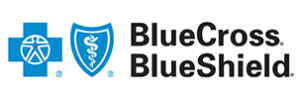Warner Park Recovery Center – Woodland Hills Mental Health







According to the Diagnostic and Statistical Manual of Mental Disorders (DSM-5) created by the American Psychology Association, depression is a mental health disorder characterized by persistently low moods and loss of interest that causes significant impairment in daily functioning abilities. Those diagnosed with major depression report the most prominent symptom being profound sadness and a sense of despair that interferes with daily activities and functioning.
In order to be diagnosed with major depression, one must be experiencing symptoms for at least two weeks, but usually, the symptoms of depression continue even longer, sometimes lasting even months or years.
Many people diagnosed with depressive disorders also struggle with anxiety as well. They tend to worry excessively about normal daily circumstances and their health. They may struggle in interpersonal relationships, sexual functioning, and in their work-life as well.
Many people with depression are at higher risk of developing a problem with abusing alcohol, drugs, and other substances and/or behavioral addictions.
Depression can affect men and women of all ages. Depression can also affect children, teenagers, and the elderly population as well but will often go undiagnosed in these communities. Statistics show that twice as many women are diagnosed with depression as men. The increased risk factors for women can be due to hormonal changes, menstruation, pregnancy, miscarriage, and menopause.
Depression in men is substantially unreported. This is thought to be due to the negative stigma around mental health and masculinity. Men that suffer from depression are less likely to seek help. Signs of depression in men may include irritability and explosive anger, violence, substance use, increase physical illness, as well as thoughts, intentions, plans, and actions relating to death and suicide.
Those who struggle with other co-occurring disorders, such as people with anxiety disorders, PTSD, drug addiction, specific phobias, are at higher risk of suffering from depressive episodes.
If you fear yourself or a loved one may be suffering from a mental health or addiction disorder, our assessment tool may be of use. Although our assessments cannot replace a diagnosis from a trained medical professional, they can help determine how many symptoms a person is experiencing for any addiction or mental health disorder.
There is no reason to wait. If you have any reason to suspect you or someone around you may be dealing with a severe addiction or mental health disorder, take our assessment and reach out to us today!
It is common for symptoms of depression to manifest alongside other types of anxiety disorders, mental health diagnoses, and chemical dependency issues. When an individual struggles with a co-occurring diagnosis, it can be most helpful to consider treatment programs that treat dual diagnoses. By utilizing a combination of therapies in both a group and individual setting, dual diagnosis treatment centers are a safe space to address all the issues you may be struggling with.
There are many types of antidepressants that can be used to alleviate negative symptoms. Please check with your treatment provider to further discuss your options.
Based on your test results we are sending you this notification in order to better assist you. Please feel free to reach out with no strings attached and speak with one of our live representatives today.